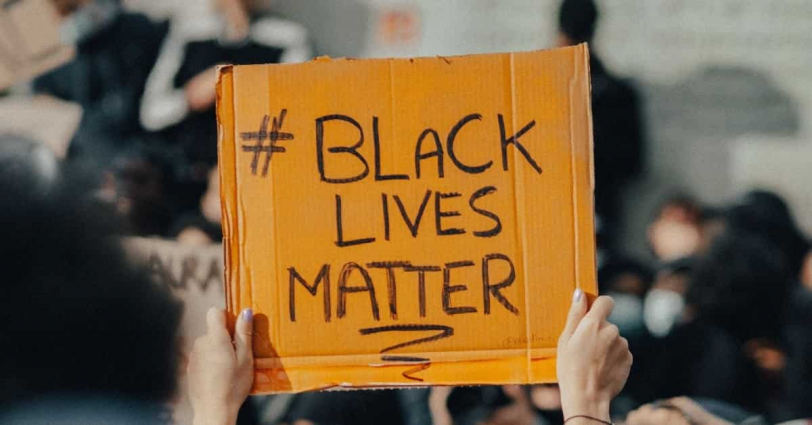I wrote this article in Japanese and translated it into English using ChatGPT. I also used ChatGPT to create the English article title. I did my best to correct any translation mistakes, but please let me know if you find any errors. By the way, I did not use ChatGPT when writing the Japanese article. The entire article was written from scratch by me, Saikawa Goto.
Introduction
Movies and books covered in this article

I will write an article about this movie/book
What I want to convey in this article
People who can only make themselves look competent by undervaluing others are too incompetent.



The more incompetent such people are, the worse they are because they often mistakenly believe that they are competent.
Three takeaways from this article
- We tend to judge others by saying things like “He’s no good because he’s XX,” not just about racism.
- Those who can appropriately allocate talent for the benefit of the whole are competent.
- “Prejudice” is something that the receiver feels, not something that the giver can recognize.



It may have improved since the old days, but I always feel that I want the world to be more equal.
Self-introduction article


Please refer to the self-introduction article above to learn about the person writing this article. Be sure to check out the Kindle book linked below as well.


Published Kindle books(Free on Kindle Unlimited)
“The genius Einstein: An easy-to-understand book about interesting science advances that is not too simple based on his life and discoveries: Theory of Relativity, Cosmology and Quantum Theory”
“Why is “lack of imagination” called “communication skills”?: Japanese-specific”negative” communication”
The quotes used in this article are based on notes taken at the movie theater from movies in Japanese and are not direct quotes from the foreign language original movies, even if they exist.
I Want Society that Prevents “Talented Individuals” from being Active Because of “Prejudice” to End Soon
“Incompetent Individuals” are Those Who Cannot Utilize Other People’s Abilities
In daily life, there are various things that make we think “what an incompetent person.” However, I try not to judge a person’s ability too much based on whether they can do something or not. Everyone has their own strengths and weaknesses, and I have a lot of areas where I am overwhelmingly less capable than the average person. I believe that judging someone as “incompetent” just because they cannot do something can also be harmful to oneself.


You are really bad at things like “remembering people’s faces and names” or “making phone calls,” right?



Yeah, I’ve already given up on that kind of stuff.


So what kind of person do I perceive as “incompetent”? It is someone who is unable to take advantage of other people’s abilities. When I say “other people’s abilities,” I don’t mean that they need to be “extremely good at drawing pictures” or “have a tremendous sense of programming. When working as a group in an organization, various people cooperate with each other to tackle business and other issues, and there should be various people who play indispensable roles in such a situation.
It would be certainly difficult to capture each individual’s characteristics and place them in the appropriate position. However, what I want to say here is not about that, but rather about the fact that “jealousy and prejudice prevent others from fully utilizing their talents”.


Although it has certainly decreased compared to a few decades ago, there are still people who try to assert their superiority with statements like “Women should just keep quiet” or “You went to a low-ranked university.” And among these people, there are some who do not try to utilize those who have abilities, perhaps because they want to be praised, evaluated, or gain a sense of superiority themselves. Alternatively, there may be those who pretend to utilize their abilities but ultimately take all the credit for the results.


I truly feel that these types of people are “incompetent.” I have had the opportunity to interact with many such individuals throughout my life.





When I was in my twenties, I wasted a lot of time fighting against those kind of “idiots”.
The only advantage you gained from continuing to fight was understanding that it was all useless, right.
The confusing thing is that those people consider themselves “competent”. I believe that recognizing others’ competence is the true sign of being “competent”. However, such people have no means to show themselves as “competent” except by making those around them look “incompetent”. It feels like the epitome of “incompetence”.
Do you know your role? It’s to discover the genius who will lead everyone.


This is a line from a white male character in the movie. I feel that his stance in the “environment where black women are being oppressed” is exactly what it means to be “competent.” For him, the most important thing is “the success of the project,” and he believes that he should do his best for it. Therefore, he cannot be trapped by jealousy or prejudice.
In the movie, the scene where this white male character swings down a hammer was very impressive. This scene, which clearly shows his stance not only in words but also in attitude, could serve as a model for those in positions of power, even in modern times.


How to Overcome “Discrimination and Prejudice”
This movie is set in America during a time when discrimination against black people was visibly present. Even in today’s society, where there has been some change in awareness through various ideas and actions such as SDGs, LGBTQ, and BLM, discrimination against black people still exists. The setting of the movie is a time when such discrimination was openly and blatantly carried out, and it was a much harsher environment than we can imagine as modern-day individuals.




One of the black female protagonists runs to the “non-white restroom” every day, doesn’t she?”



The building where she works doesn’t have a “non-white restroom”, so she has to dash to another building on a wide property every time.
From a modern perspective, the existence of a “non-white restroom” is surprising, but at the time, it was considered normal.


When it comes to “racial issues”, it can be difficult for us Japanese people to imagine (although there are Ainu people in Japan, they are not a familiar existence for me, who lives in Tokyo). However, what is depicted in this movie can be understood by replacing it with other various forms of discrimination and prejudice, such as gender discrimination or LGBTQ.


There was a very impressive exchange in the movie.
“I don’t have any prejudice.”
“Of course, I know you are under the impression that.”
I also thought I was someone with few prejudices about various things, but after hearing this line, I became aware of the danger of such self-perception. “Prejudice” is something that the “recipient feels,” not something that the “imposer can recognize.” Therefore, if you are not the one “receiving prejudice,” you must always be aware of the possibility of “unintentionally imposing ‘prejudice'” and keep the perspective of the one “receiving prejudice” in mind.


In that sense, films like this one are important.



I don’t want to be in a situation where someone suffers because of me.
But it’s really hard to realize it on your own, so having a “relationship where someone points it out to you” is important.
What’s interesting about this film is that it portrays both the brilliant aspect of “American space development” and the grotesque aspect of “discrimination against black people”. And for both, actual footage from America at the time is incorporated, increasing the “intensity of the facts”.




I think the world is gradually getting better. However, just as there was a black woman who suffered in obscurity behind the great achievement of “space development,” there would be still many people suffering without their hardships being known. This made me realize the importance of having such imagination again.


Content Introduction
In 1961, the United States was in the midst of fierce competition with the Soviet Union to achieve manned flight, and NASA was at the forefront of that competition, putting their national prestige on its success. However, the state where NASA was headquartered was also an area where the distinction between “white” and “non-white” was strongly entrenched.
This is the story of the black women who worked at NASA.


Many of these women work as “calculators.” This was a time before computers existed. All calculations related to launch and landing were done manually. Although their role was critical in the manned spaceflight project, these women were in an underprivileged situation because they were “Black.”




Dorothy, who leads the black women, has been given a job with responsibilities under the title of “deputy since the previous person retired. She cannot become a formal manager because she is black.
Mary, who has a deep understanding of technology, was encouraged by her colleagues to become a technician. However, for Mary, it is an impossible choice. This is because according to NASA regulations, only white people can attend the lectures of the schools required to become a NASA technician.
Katherine, who performs calculations more accurately and perfectly than anyone else, was entrusted with important calculations related to rocket launches at the Space Task Group. However, she spends her days being harassed by white male colleagues. And, Katherine cannot help but dashe around the premises because there are no “non-white restrooms” in the building.


They are trying to fully utilize their abilities to contribute to the American nation, but the organization’s logic does not allow them to do so easily.
Despite NASA’s desperate struggles, on April 12, 1961, news arrived that the Soviet Union’s Gagarin had successfully achieved manned space flight. This meant that America had been defeated by the Soviet Union.
Even if they fell behind the Soviet Union, NASA had to succeed in manned space flight no matter what. However, even in this situation, prejudice against black people still persisted. While breaking down such discrimination one by one, they became indispensable to NASA.


Impression
It was a very good movie. The three characters, Dorothy, Mary, and Katherine, are real people, and although there may be some fiction mixed in, I think the movie is based on a true story. I was surprised to learn that even NASA was like this, and it reminded me once again of the severity of the United States as a country.
Each of the female protagonists has their own shining moment.


In Dorothy’s case, it’s the library scene. I think it is wonderful that she has the ability to look into the future, think about what she should do now, and put it into action. Furthermore, her actions will also be related to her response when she receives a certain offer from her boss later on. It was a brilliant decision-making ability.


For Mary, it’s the courtroom scene. In order to win a certain right, she gives a speech to the judge, which is truly magnificent.
I have no choice but to be the precedent.
I was thrilled by this line.


Katherine receives the most attention out of the three main characters and has many great scenes. However, I would like to highlight a scene where Katherine is not present. In a scene where astronaut Glen talks about Katherine, his words give a refreshing feeling that blows away all of her negatives up to that point.
Please pay attention to the life stories of these three very different women.
Although the theme is somewhat heavy, these three African American women perform their roles in a fairly pop style, making it a very entertaining film.


Conclusion
I believe that discrimination and prejudice can only be changed by “becoming aware of them.” In everyday life, there may be opportunities to realize that one is the one who imposes discrimination and prejudice.
In that way, I always think that if everyone can gradually feel some pain and become a little closer to a “better society,” it would be great.


Published Kindle books(Free on Kindle Unlimited)
“The genius Einstein: An easy-to-understand book about interesting science advances that is not too simple based on his life and discoveries: Theory of Relativity, Cosmology and Quantum Theory”
“Why is “lack of imagination” called “communication skills”?: Japanese-specific”negative” communication”







コメント